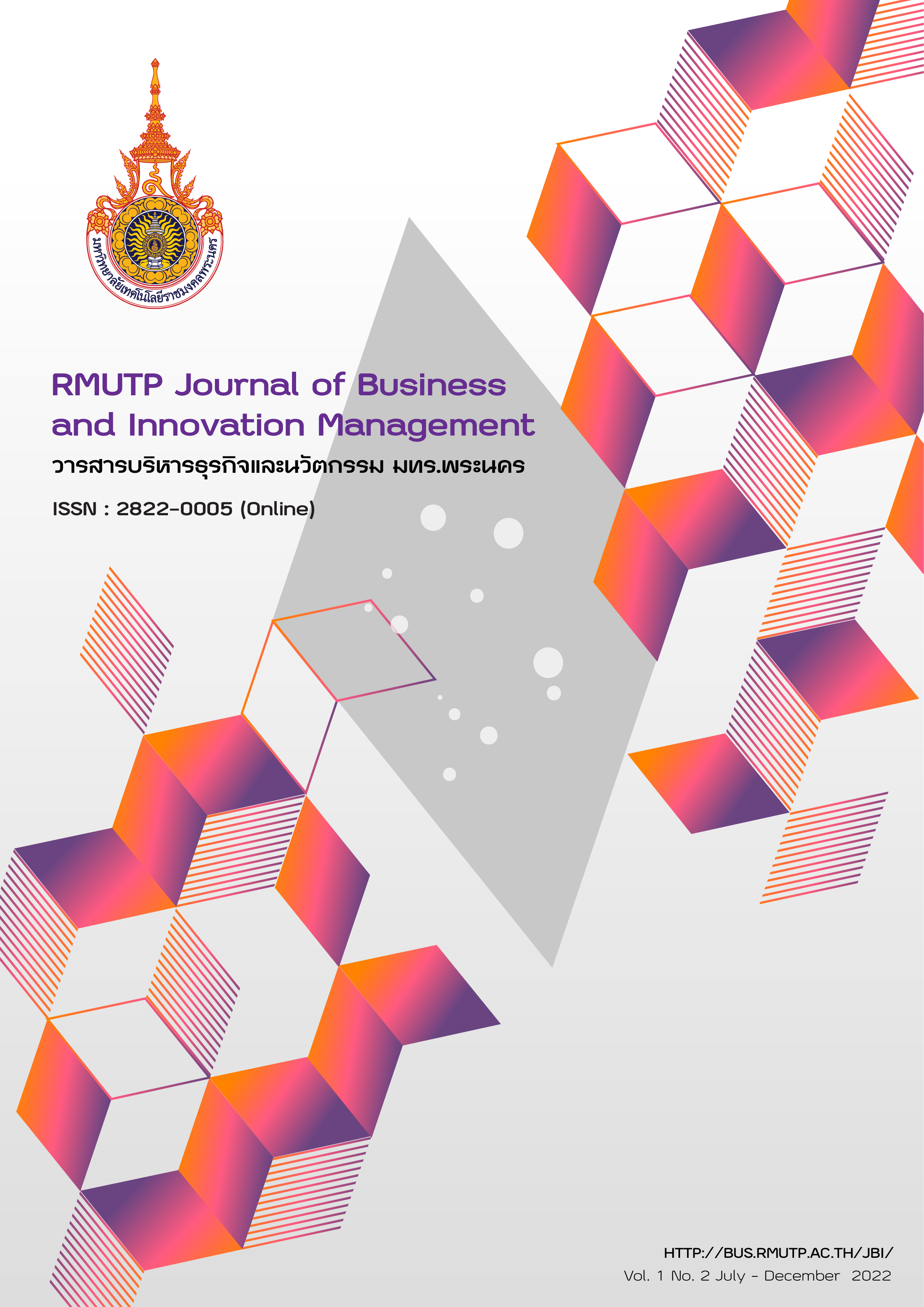Marketing Mix for Sustainable Development
Main Article Content
Abstract
A new era of modern marketing, marketers require to figure out how to market in order to get the most out of it. The determination of business success was to develop marketing Mix in accordance with market demands and consumer demands, to develop the elements of sustainable development without expecting too much profit, and to show responsibility to society and the environment. A marketing Mix for sustainable development. These consisted of 1) products and services should be continually developed, which make the product difficult to imitate and must be environmental friendly; 2) price should set the price of the product that represents the value and customers are willing to pay for such innovative products; 3) distribution channels should be connected by internet and networking to enable effective use of online communication channels, easy to access, easy to use, convenient, fast; and 4) marketing promotion should be proactive and efficiently bring consumers to us in new ways through social media.
Article Details

This work is licensed under a Creative Commons Attribution-NonCommercial-NoDerivatives 4.0 International License.
Articles published in the Journal of Business Administration and Innovation Rajamangala University of Technology Phra Nakhon contains information and content. The article's single author is accountable for it. In all instances, the journal's editors are not accountable for any losses incurred.
References
กมลทิพย์ บุปผา. (2561). ปัจจัยส่วนประสมทางการตลาดที่ส่งผลต่อการ ตัดสินใจซื้อเครื่องประดับผ่านโมบายแอพพลิเคชั่นของผู้บริโภคในเขตกรุงเทพมหานคร. (การค้นคว้าอิสระ บริหารธุรกิจมหาบัณฑิต). สถาบันเทคโนโลยีไทย-ญี่ปุ่น.
กานต์สุดา มาฆะศิรานนท์ และ วีรวุธ มาฆะศิรานนท์. (2555). วิธีเขียนแผนการตลาด. กรุงเทพฯ: ธรรกมลการพิมพ์.
กิรติ ยศยิ่งยง. (2552). องค์กรแห่งนวัตกรรม. กรุงเทพฯ: โรงพิมพ์แห่งจุฬาลงกรณ์มหาวิทยาลัย.
เกษร เกษมชื่นยศ. (2563). การพัฒนาของไทยตามเป้าหมายการพัฒนาที่ยั่งยืน. สาขาวิชารัฐประศาสนศาสตร์ คณะมนุษย์ศาสตร์และสังคมศาสตร์ มหาวิทยาลัยราชภัฏจันทรเกษม.
จิระวัฒน์ อนุวิชชานนท์ ศิริวรรณ เสรีรัตน์ ปณิศา มีจินดา จันจนา ศิริพันธ์วัฒนา กนกกานต์ วีระกุล และ นราธิป ปุณเกษม. (2562). นวัตกรรมไอศกรีมลดพลังงานจากผลไม้ท้องถิ่นไทยและกลยุทธ์นวัตกรรมทางการตลาด. (รายงานการวิจัย). มหาวิทยาลัยสวนดุสิต.
โชคดี คู่ทวีกุล. (2561). การส่งเสริมการท่องเที่ยวเชิงอาหารโดยรถอาหารเคลื่อนที่ (Food Truck) กรณีศึกษา: อำเภอหัวหิน จังหวัดประจวบคีรีขันธ์. (การค้นคว้าอิสระ ศิลปศาสตรมหาบัณฑิต). สาขาวิชาการจัดการโรงแรมและการท่องเที่ยว, มหาวิทยาลัยพะเยา.
นธกฤต วันต๊ะเมล์. (2561). การตลาดเพื่อความยั่งยืน. กรุงเทพฯ: โรงพิมพ์แห่งจุฬาลงกรณ์มหาวิทยาลัย.
รสสุคนธ์ ทิพย์วงศ์. (2561). ปัจจัยสำคัญในธุรกิจออนไลน์ ของธุรกิจเฟอร์นิเจอร์ไม้สักในจังหวัดแพร่. (การค้นคว้าอิสระ บริหารธุรกิจมหาบัณฑิต). มหาวิทยาลัยแม่ฟ้าหลวง.
วนิดา เสร็จกิจ. (2563). การพัฒนาชุมชนอย่างยั่งยืนในบริบทของการพัฒนาประเทศ. สาขารัฐศาสตร์ โครงการปรัชญาดุษฎีบัณฑิตทางสังคมศาสตร์ มหาวิทยาลัยรามคำแหง.
ศศิพร ต่ายคำ ฐานะวัฒนา สุขวงศ์ และ บุศรินทร์ ชื่นศิลป์. (2562). การพัฒนารูปแบบการสื่อสารการตลาดออนไลน์สินค้าเกษตรอินทรีย์ของวิสาหกิจชุมชน. (การค้นคว้าอิสระ). บัณฑิตวิทยาลัย, มหาวิทยาลัยสวนดุสิต.
เสาวภา มีถาวรกุล. (2551). การจัดการธุรกิจการเกษตรด้านการตลาด. นนทบุรี: ประมวลสาระชุดวิชาการจัดการธุรกิจเกษตร มหาวิทยาลัยสุโขทัยธรรมมาธิราช.
Armstrong, G. & Kotler, P. (2009). Marketing an Introduction. 9th ed. New Jersey: Pearson Prentice Hall.
Belz, F.M. & Peattie, K. (2012). Sustainable Marketing: A Global Perspective (2 ed.). West Sussex, U.K.: John Wiley and Sons.
Emery, B. (2012). Sustainable Marketing. Harlow, England: Pearson Education.
Kotler, P., & Keller, K. L. (2012). Marketing Management (14th ed). New Jersey: Prentice-Hall.
Murr, C.K. (2008). Beyond Green Marketing: New Approaches for A Possible Implementation of Sustainable in Marketing. Saarbrucken, Germany: VDM Verlag Dr. Muller.
Naidoo, V. (2010). Firm survival through a crisis: The influence of market orientation, marketing innovation and business strategy. Industrial Marketing Management, 10.
National Retail Federation. (2022). Sustainable Marketing. Retrieved November 30, 2022, from http://www.advertising.amazon.com/sustainablemaketing.
United Nations. (2004). Sustainable Consumption and Production in Asia and the Pacific: A Review of Status and Trends. Nairobi: UNEP.


